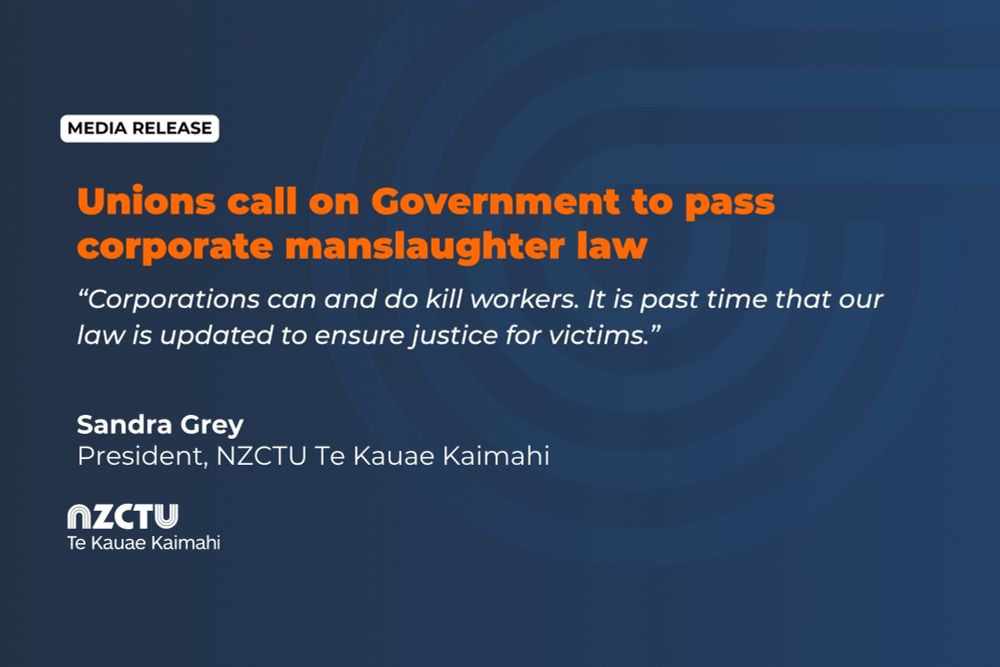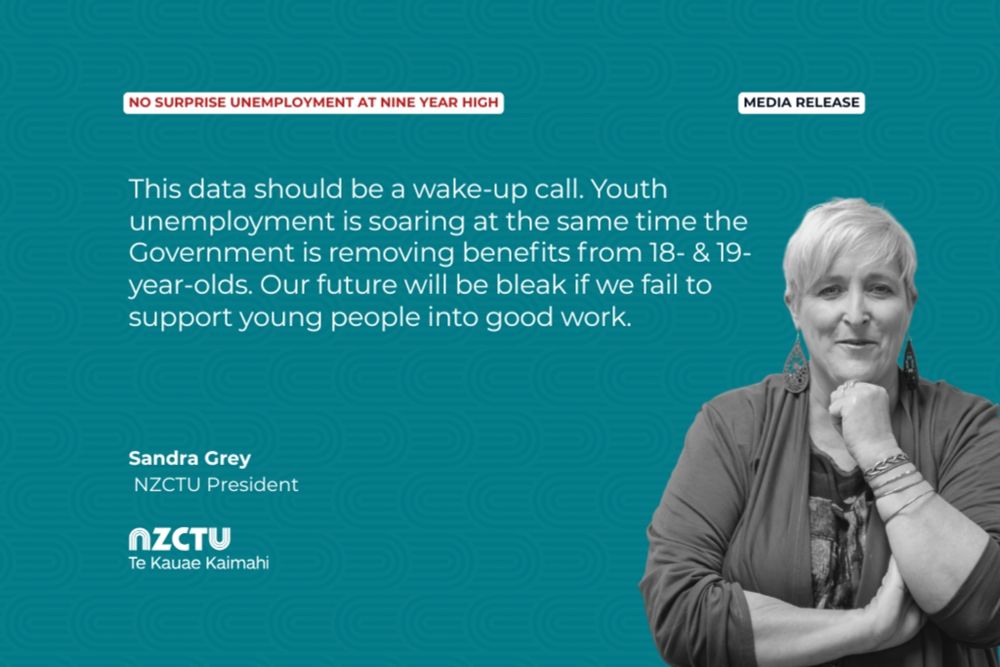


They're facing a Dire Emergency: broken down trucks, dangerous staffing, faulty equipment, and FENZ refusing to address a failing system. Firefighters want to keep New Zealanders safe—but they need FENZ to show up and genuinely prioritise community safety. #nzpol




They're facing a Dire Emergency: broken down trucks, dangerous staffing, faulty equipment, and FENZ refusing to address a failing system. Firefighters want to keep New Zealanders safe—but they need FENZ to show up and genuinely prioritise community safety. #nzpol
NZPFU Secretary Wattie Watson speaking at the firefighters' strike in Te Whanganui-a-tara Wellington this afternoon. #nzpol
NZPFU Secretary Wattie Watson speaking at the firefighters' strike in Te Whanganui-a-tara Wellington this afternoon. #nzpol
The NZCTU, along with more than 45 unions, educators and health leaders, is calling for an urgent review into the system failures that allowed this to happen:

The NZCTU, along with more than 45 unions, educators and health leaders, is calling for an urgent review into the system failures that allowed this to happen:
"[van Velden] seemed to be focusing all the time on the employers and I sat and listened to it for a little while and then I just couldn't stand it,"

"[van Velden] seemed to be focusing all the time on the employers and I sat and listened to it for a little while and then I just couldn't stand it,"
We're calling on the Government to honour the memories of the workers who lost their lives fifteen years ago today at the Pike River Mine by supporting a corporate manslaughter law.

We're calling on the Government to honour the memories of the workers who lost their lives fifteen years ago today at the Pike River Mine by supporting a corporate manslaughter law.
www.phcc.org.nz/briefing/fif...

www.phcc.org.nz/briefing/fif...

The Supreme Court has ruled in favour of Uber Drivers and their unions, saying that they are employees not contractors. Now the NZCTU Te Kauae Kaimahi is calling on the Government to respect this ruling and uphold the rights of platform and gig economy workers:

The Supreme Court has ruled in favour of Uber Drivers and their unions, saying that they are employees not contractors. Now the NZCTU Te Kauae Kaimahi is calling on the Government to respect this ruling and uphold the rights of platform and gig economy workers:
union.org.nz/union-moveme...

union.org.nz/union-moveme...
At our Conference last month, affiliate unions of the NZCTU Te Kauae Kaimahi passed a motion of solidarity with with public sector workers who are who are fighting for fair pay, safe staffing, and effective services.
#nzpol

At our Conference last month, affiliate unions of the NZCTU Te Kauae Kaimahi passed a motion of solidarity with with public sector workers who are who are fighting for fair pay, safe staffing, and effective services.
#nzpol

Aotearoa that works for the many, and keep up the fight for workers and their unions both here and overseas. Solidarity ✊
#nzpol

Aotearoa that works for the many, and keep up the fight for workers and their unions both here and overseas. Solidarity ✊
#nzpol



